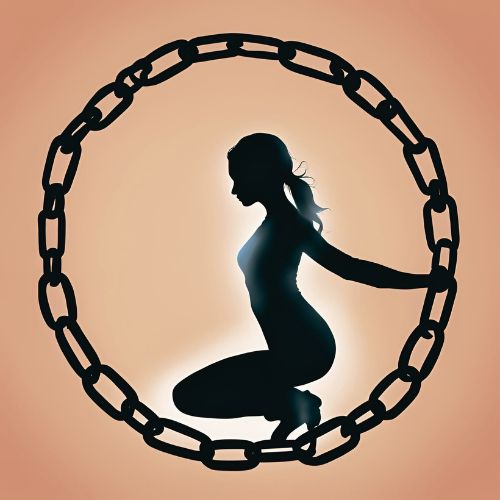Overview: Obsessive-Compulsive Disorder

OCD is an anxiety disorder and can take on a wide variety of forms and themes. It is estimated that about 2% of the people worldwide suffer from OCD*.
OCD sufferers are tormented by obsessive thoughts, i. e. they see horrible images in their mind, or feel like a cruel 'inner voice' instills into them the most horrendous ideas. Obsessive thoughts can appear as violent fantasies, blasphemous thoughts, apparent 'premonitions' of catastrophes for oneself or loved ones; the nature and content of obsessions is as diverse as people. There is a number of recurring 'themes', though, among else**:
- hygiene (fear of germs, or other forms of 'contamination')
- fear of loss (may lead to hoarding behavior)
- wish to be 'perfect'
- fear of harming oneself or others
Obsessions keep reappearing, and the more they are repressed, the stronger they usually get. Being in a constant state of anxiety is an extreme mental burden and therefore the brain tries to 'neutralize' the unpleasant thoughts by performing a compulsive action. For example: "If I flick the light switch on and off exactly five times, the terrible event I see in my mind will not occur."
Self-Reflection: What are your obsessions, and what kind of compulsions do you indulge in? If you like, make a list and compare: do any of your obsessions correspond to the 'typical' OCD themes mentioned above?
This provides short-term relief, but unfortunately only until the obsessive thoughts return; and they do so over and over again. Each time they are 'neutralized' through compulsive actions, which means that the mind learns that compulsions are the method of choice for dealing with threatening thoughts and feelings...and there you are, caught up in the OCD spiral. Breaking it is difficult, because you have to convince your mind that nothing bad will happen even if you do not perform a compulsive action - that is the training goal of ERP (Exposure and Response Prevention), the current 'gold-standard' of OCD therapy (other therapeutic tools, which are sometimes combined with ERP, include CBT, medication, counseling, and in extreme cases brain surgery; ERP has been shown to deliver the best results, though). **
Self-Reflection: If you have tried therapy before, recall what methods you have tried so far and reflect on what worked well for you, and what not (and why).
However, resisting the urge to do compulsions is incredibly difficult for many OCD sufferers, especially if they are not practicing in the therapist's office, but alone at home. It takes a great deal of inner strength and, above all, courage to face the obsession without indulging in compulsions. For this reason, the Buddhist self-help program presented here includes many elements to help you build up inner strength, apart from working on your anxiety. You can read more about how it works in the following articles.
*German OCD Foundation (Deutsche Gesellschaft für Zwangserkrankungen e.V.): https://www.zwaenge.de/diagnose/haeufigkeit_verlauf/
**Drummond, L. and Edwards, L (2018): Obsessive Compulsive Disorders. All you want to know about OCD for People Living with OCD, Carers, and Clinicians. Cambridge University Press.